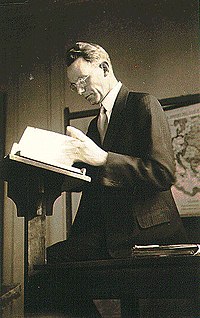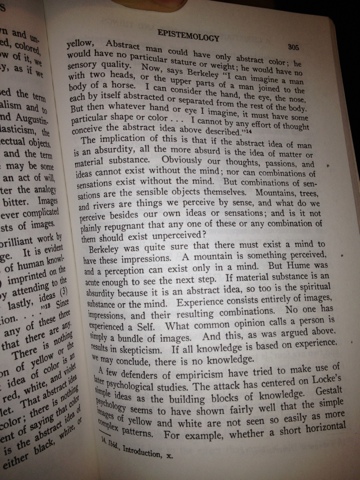Dr. Carrier writes (taken from his site here):
(1) • What caused the universe to exist?
Fallacy of loaded
question. It is not established that the universe began, and
thus had a cause at all.
Our universe began (at the Big Bang) but we have no way of knowing
anymore what if anything preceded that event. And as for what caused our one
specific universe, we already know the answer to that: the Big Bang did (an
event and process that completely eluded all divine Christian revelation for
two thousand years, as well as all divine Muslim and Jewish revelation
throughout the whole of their existence). As to what caused the Big Bang, we
have many viable theories (from Hawking’s The Grand
Design to Krauss’ A Universe
from Nothing to Vilenkin’s Many
Worlds in One, all of which predict and explain numerous
strange and often specific features of the universe that no theology has ever
been able to deduce from the hypothesis that God did it). As far as figuring
out which one is right, cosmological scientists are working on it. They’ve made
tremendous progress. Theology has made none.
If we revise the question to ask something more abstract like
“Why does the universe exist?” (thus admitting that maybe it has always existed
in some form, and thus was never ultimately “caused,” but asking instead “why”
it exists instead of something else, or nothing at all), then the answer is the
same as why a god is supposed to exist. (He just does? Then the universe just
does. He exists necessarily? Then a universe exists necessarily. We can play
this game forever.) If we revise the question into something conditional like,
“If
all existence itself began, then what caused it?,” then the answer is any of
dozens of possible things, all of which have a vastly lower specified
complexity than a complex intelligent mind and therefore have a far greater
prior probability (see The God Impossible)–and
by explaining observed evidence better, they also have a far greater posterior probability as
well. This follows from the argument from scale, including the mind-boggling
scale of this universe’s lethality and inhospitability to life (indeed the
universe is far better designed to generate black holes than life).
I discuss all these facts throughout my entries in the Carrier-Wanchick
Debate. I have more recently described ten possible
causal or explanatory theories of why an orderly universe exists
in previous comments on my blog (and we needn’t know which are true to know
they are all simpler theories, and often based in more background evidence,
than any god hypothesis). I more formally outline why the evidence (the nature
of the universe we find ourselves in) is far more likely on any such godless
hypothesis than on any rational form of theism in my chapter “Neither Life Nor
the Universe Appear Intelligently Designed” in The End of
Christianity (pp. 279-304). I’ll quote one key section of
that to give you an idea of what I mean:
[T]his universe is
99.99999 percent composed of lethal radiation-filled vacuum, and 99.99999
percent of all the material in the universe comprises stars and black holes on
which nothing can ever live, and 99.99999 percent of all other material in the
universe (all planets, moons, clouds, asteroids) is barren of life or even
outright inhospitable to life. In other words, the universe we observe is extraordinarily
inhospitable to life. Even what tiny inconsequential bits of it are at all
hospitable are extremely inefficient at producing life—at all, but far more so
intelligent life …. One way or another, a universe perfectly designed for life
would easily, readily, and abundantly produce and sustain life. Most of the
contents of that universe would be conducive to life or benefit life. Yet
that’s not what we see. Instead, almost the entire universe is lethal to
life—in fact, if we put all the lethal vacuum of outer space swamped with
deadly radiation into an area the size of a house, you would never find the
comparably microscopic speck of area that sustains life (it would literally be
smaller than a single proton). It’s exceedingly difficult to imagine a universe
less
conducive to life than that—indeed, that’s about as close to being completely
incapable of producing life as any random universe can be expected to be, other
than of course being completely incapable of producing life. (pp. 295-96)
And yet…
That is exactly what
we would have to see if life arose by accident. Because life can arise by
accident only in a universe that large and old. The fact that we observe
exactly what the theory of accidental origin requires and predicts is evidence
that our theory is correct. (p. 290)
Because without a God, life can only exist by chemical accident,
such a chemical accident will be exceedingly rare, and exceedingly rare things
only commonly happen in vast universes where countless tries are made over vast
spans of time. Likewise, a universe not designed for us will not look well
suited to us but be almost entirely unsuited to us and we will survive only in
a few tiny chance pockets of survivable space in it. Atheism thus predicts,
with near 100% certainly, several bizarre features of the universe (it’s vast
size and age and lethality to life), whereas we cannot deduce any of those
features from any non-gerrymandered God hypothesis (while gerrymandered
hypotheses all grossly violate Occam’s Razor).
My Reply
Dr.
Carrier is quite mistaken to say, “Our universe began (at the Big Bang) but we have no way of
knowing anymore what if anything preceded that event” since he would have to
know the limits of knowledge to make such a claim. In which case, Dr. Carrier
would be inconsistent claiming to know what cannot be known.
Dr. Carrier tells us,
“As to what caused the Big Bang, we have many viable theories
(from Hawking’s The Grand
Design to Krauss’ A Universe
from Nothing to Vilenkin’s Many
Worlds in One, all of which predict and explain numerous
strange and often specific features of the universe that no theology has ever
been able to deduce from the hypothesis that God did it). As far as figuring
out which one is right, cosmological scientists are working on it. They’ve made
tremendous progress. Theology has made none.”
It is strange how Dr. Carrier doesn’t explain in what ways these
alternative theories can evade the absolute beginning of the universe. Perhaps
it is because they, in fact, cannot. All of the models, he mentions, still conclude the absolute beginning of the universe. Dr. Carrier talks of the universe just existing inexplicably, which amounts to an arbitrary claim. He also discusses the possibility of the universe having necessary existence.This is obviously false since we can rationally imagine there being no universe. The universe did not have to exist.
Moreover, the theology and tone, Dr.
Carrier wishes to criticize as “the hypothesis that God did it” is
a naive understanding of Christian theology and philosophy. It is naive as if one characterized the metaphysical naturalism of Dr. Carrier as "the hypothesis that nature did it." But is God to be treated as merely a hypothesis? As Christians we understand all things are created and sustained by God’s direct providence. So in this sense all things can be explain by God; but that taken by itself, especially for Christian scientists, can be somewhat trivial. This is why science focuses on God’s indirect providence with God’s direct providence as its foundation. That is to say science graphs the interactions and relations between secondary causes with the necessary assumption of God as the primary cause. Sound Christian
theology and philosophy does not start with God as merely a hypothesis, but as
a necessary prerequisite for even hypothesizing. There is a significant
difference between the two. The former starts with God as a hypothesis to make
experiments and predictions to confirm or falsify God. The latter starts with
God as a presupposition necessary to even account for hypothesizes,
experiments, predictions, confirmations, or falsifications. I sense, here, Dr.
Carrier would say both views amount merely to the arbitrary claim, namely “God
did it.” But Christians’ are certainly not making an arbitrary claim. Quite the contrary, Christians are arguing the very fact that arbitrariness is a key intellectual sin is due to God being the starting-point. God, who himself is rational, created us to reflect His nature. Since we are made in His image to be rational, we (have a reason to) object to arbitrariness. The very charge of arbitrariness, Dr. Carrier wishes to pin on Christianity, exposes the fact he is made in the image of God. Is the Christian claim arbitrary though? It must be a resounding no! Christianity as a worldview is coherent and self-justifying. The problem is naturalists preclude Christianity from being true simply on the basis of their faith in metaphysical naturalism. Still it
is worth asking, why is an arbitrary answer insufficient for Dr. Carrier? Why
isn’t an arbitrary answer preferred over a rational one? I bet he’d answer along
the lines that a person ought to have reasons for what she believes. A person
has the epistemic responsibility to acquire reasons to form beliefs. If he
would say these things no appeal to natural selection can explain where these
rational obligations and responsibilities come from.
Dr. Carrier uses probability theory to say certain theories make it more probable that the universe would arise from nothing by nothing in the way it exists presently. Yet he neglects to mention the highly unreliable nature of probability theory given the background information needed to accurately represent and calculate any given thing.
He talks a lot about order which cannot be rightly accounted for given the requirement of chance to explain the universe from metaphysical naturalism.
Why Dr. Carrier quibbles about sticking to
Ockam’s razor is nonsense from naturalism.
For a different take on some of the same issues discussed here check out my posts here and here.








